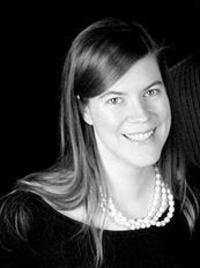Call for Contributed Talks & Poster Abstracts
Bringing together leading researchers, practitioners, and teachers in network science (including analysts, modeling experts, visualization specialists, and others), NetSci fosters interdisciplinary communication and collaboration. The conference focuses on novel directions in networks research within the biological and environmental sciences, computer and information sciences, social sciences, finance and business.
Deadlines
February 29, 2012: Submission of Abstracts
April 15, 2012: Notification of Acceptance
June 1, 2012: Last Day for Submission of Revisions
Rules Governing Submission of Contributed Talks & Posters
1. A first author may present only one contributed abstract for the regular program. If a second abstract is submitted with the same first author, that abstract may be placed as a poster, at the discretion of the program committee.
2. Abstracts submitted after the abstract deadline may be placed in poster sessions or rejected at the discretion of the program organizers, who are under no obligation to schedule any contributed abstract that arrives after the close of business on the deadline date.
3. Preferences expressed by the author for oral or poster presentation, for presentation on a particular day, or for a particular order of presentation within a session, will be accommodated whenever possible, but at the discretion of the program organizers. Please note your preference at the end of your abstract: Contributed Only, Poster Only or Both.
4. Abstracts must be submitted via the EasyChair abstract submission link. Although .pdf submissions are accepted, you still MUST add the author’s and abstract in the spaces provided. For .pdf’s, font must be no less than 10pt, have 1 inch margins, single space formatting and cannot exceed 1 page.
Submission Link: http://www.easychair.org/conferences/?conf=netsci2012
5. Once the abstracts have been sorted by the program organizers, honoring requests for changes to abstracts will be limited to misspellings in authors’ names up until the program is published on the web. Therefore it is imperative that you proof your abstract prior to submission.
6. Upon notification of abstract placement in the program it is the responsibility of the authors to check the abstract on the web program immediately and notify the NetSci staff of any discrepancies.
7. Requests for withdrawals must come to the NetSci in writing by e-mail. Withdrawals received prior to the printing of the program Bulletin will be withdrawn from the Bulletin. Withdrawals received after the printing of the Bulletin, will be reflected in the program Corrigenda.
8. In general, the time allotted for the presentation of oral contributed abstracts is seventeen minutes for presentation and three minutes for questions.
9. Authors of abstracts assigned to poster sessions should be sure that the title and content of the poster correspond to the title and content of the abstract printed in the program Bulletin. The poster should be displayed so that a number of people can view the presentation at the same time. You may tack your poster up to the provided backing boards. When designing your poster, take into consideration that attendees may be viewing the material from a distance beyond 3′. The minimum poster size is 3′ high x 3.5′ wide (.92 x 1.07 meters) but no larger than 4′ high x 4′ wide (1.22 x 1.22 meters).
All questions regarding NetSci 2012 Contributed Talks/Posters should be directed to netsci2012@gmail.com. Please place in the subject heading – “Calls”.
 SONIC Lab is proud to welcome Duke University PhD candidate Catherine Shea. She will present her findings in a talk titled “Motivation as an Antecedent to Social Network Structure”. The talk will be on May 7th from 11:00am-12:30pm in Frances Searle Building, Room 1.421 on Northwestern’s Evanston Campus. All are welcome to attend.
SONIC Lab is proud to welcome Duke University PhD candidate Catherine Shea. She will present her findings in a talk titled “Motivation as an Antecedent to Social Network Structure”. The talk will be on May 7th from 11:00am-12:30pm in Frances Searle Building, Room 1.421 on Northwestern’s Evanston Campus. All are welcome to attend.

 Dominic DiFranzo, PhD Student in the
Dominic DiFranzo, PhD Student in the 